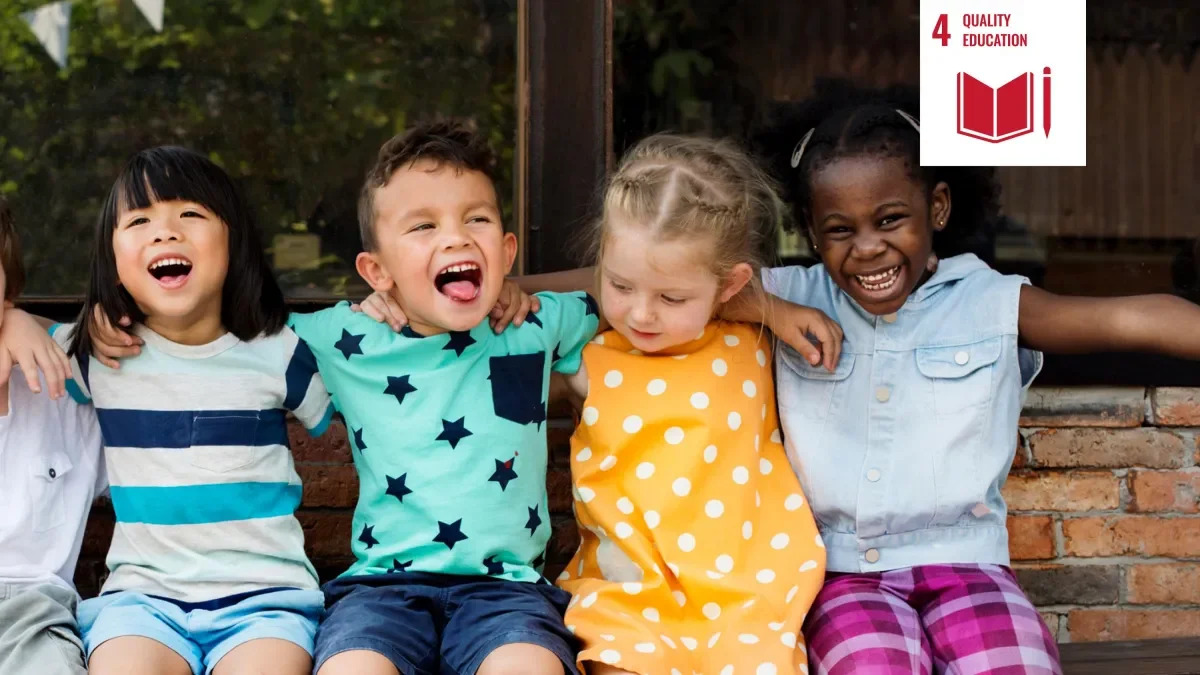
There are approximately 3,000 Deaf and Hard of Hearing (DHH) children and young people in Ireland. These children are often identified at birth through a universal neonatal hearing screening initiative in hospitals. At this point, various health, language, and education supports are made available.
While we know from international research that DHH children have higher rates of socio-emotional difficulties compared with their hearing peers, there is very little information in Ireland on this phenomenon. Deafness is, in itself, not the sole cause of such issues for children; rather a host of other factors such as language access, communication at home and at school, interaction with peers, and so forth, can have a bearing on their overall well-being. While DHH children can access the existing mainstream services under the Child and Adolescent Mental Health Services (CAMHS), these services may struggle to meet their specific needs and there are limited specialist mental health supports available.
The icon on this article represents contribution towards the UN Sustainable Development Goals. The Sustainable Development Goals are 17 objectives designed by the United Nations to serve as a shared blueprint for peace and prosperity for people and the planet.
Comprehensive analysis
It is in this context that DCU researcher, Dr Elizabeth Mathews from the Institute of Education partnered with CHIME to carry out a two-phase quantitative study of socio-emotional development of DHH children and young people in Ireland.The study was national in scale with respondents from across the Republic of Ireland. A total sample of 113 children aged 5-16 was included in the study.
In the first phase carried out in 2020-21, which focused on parents and primary caregivers, the research aimed to:
- Establish the prevalence of socio-emotional problems among DHH children in Ireland
- Compare the level of prevalence with existing national and international data
- Identify whatfactors may be related to socio-emotional problems
The second phase, published in January 2023, focused on testimony from teachers. Here the research focused on the differing reports between parents and teachers when it came to identifying socio-emotional issues.
- What is the prevalence of difficulties reported by a sample of teachers of DHH children in Ireland?
- How do these rates compare with those reported by parents in the first phase?
- How do these prevalence rates compare to those reported by teachers of a sample of typical hearing (TH) children from existing national data?
Reaching out to parents and teachers
The aim was to carry out quantitative studies in both phases using the same structured data collection method across a large sample of participants. For each phase, in order to compare findings to existing research such as the Growing Up in Ireland study, a questionnaire containing several well-known scales was used.
One scale used is the Strengths and Difficulties Questionnaire (SDQ), a common tool used for research and for mental health screening. The SDQ includes five subscales: four problem areas and one positive subscale for social skills. The first phase of the study focused on a version for parents, the second on a version for teachers. Data were collected first via the parent questionnaire and if parents provided consent to contact their child’s school, teachers were then recruited to the study for phase 2.
The target participant group comprised parents and teachers of DHH children with all degrees of deafness from mild to profound. In addition the project aimed to include children with and without needs in addition to their deafness, and from across various school placement types. In order to recruit participants, a range of methods was used, including widespread social media advertising. 113 families from 23 counties participated in the study, as well as 73 teachers.
Mental health and emotional impact
The findings demonstrate that the prevalence of socio-emotional difficulties among this cohort of children is approximately three times that of the general population, with 42% of the parent sample reporting mental health issues. In addition, DHH children’s prevalence of high scores on the SDQ (i.e. considerably more problems) was almost five times that of their hearing peers.
There was also an elevated mean score for problems in peer relationships among DHH children, which was roughly double that of the sample in the Growing Up in Ireland study. This is particularly concerning as these peer relationship problems, as measured through the SDQ, have also been shown to correlate with suicide attempts among young people: each one-point increase in score on the SDQ peer problem subscale aligning with a 58% increase in odds of making a lifetime suicide attempt.
Results gathered in the second phase further confirmed the findings of the first, though at a much lower level. The prevalence of socio-emotional difficulties for the DHH sample according to teachers was 24.6% while data on hearing children from the Growing Up in Ireland study reported much lower rates of problems at 15%. Overall, parents of DHH children were 50% more likely to report problems than teachers in the same sample of children. This underlines the importance of clinicians taking into account multiple sources, acknowledging the potential for over- and under- reporting among different samples. It also highlights the need to support teachers in identifying difficulties that may impact on learning and development.
Campaigning for dedicated support
This study represents the first large-scale national investigation into the socio-emotional development of DHH children in the Republic of Ireland. It makes specific recommendations to healthcare and education professionals around specialist screening, as well as specific calls related to further research such as a version of the SDQ questionnaire translated into Irish Sign Language.
The results provide strong evidence of high levels of socio-emotional difficulties in the DHH sample compared to their hearing peers. Following this landmark study and its findings, CHIME has been able to campaign successfully for funding from the HSE to establish a multidisciplinary team to support the needs of DHH children. This team will greatly improve the outcomes for DHHchildren seeking support for mental health issues.




